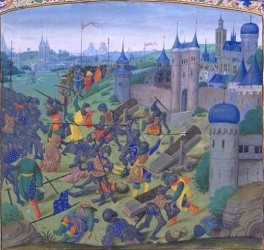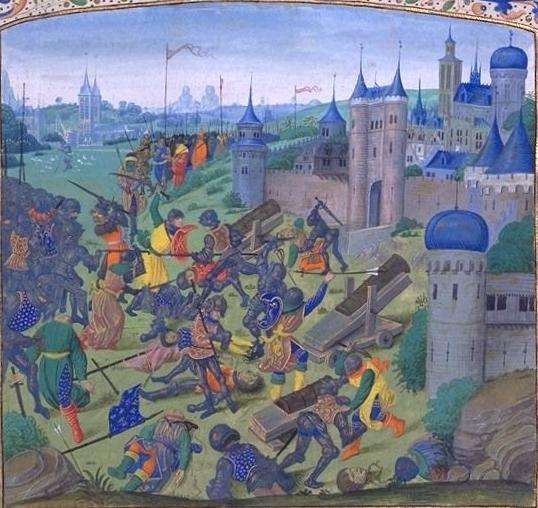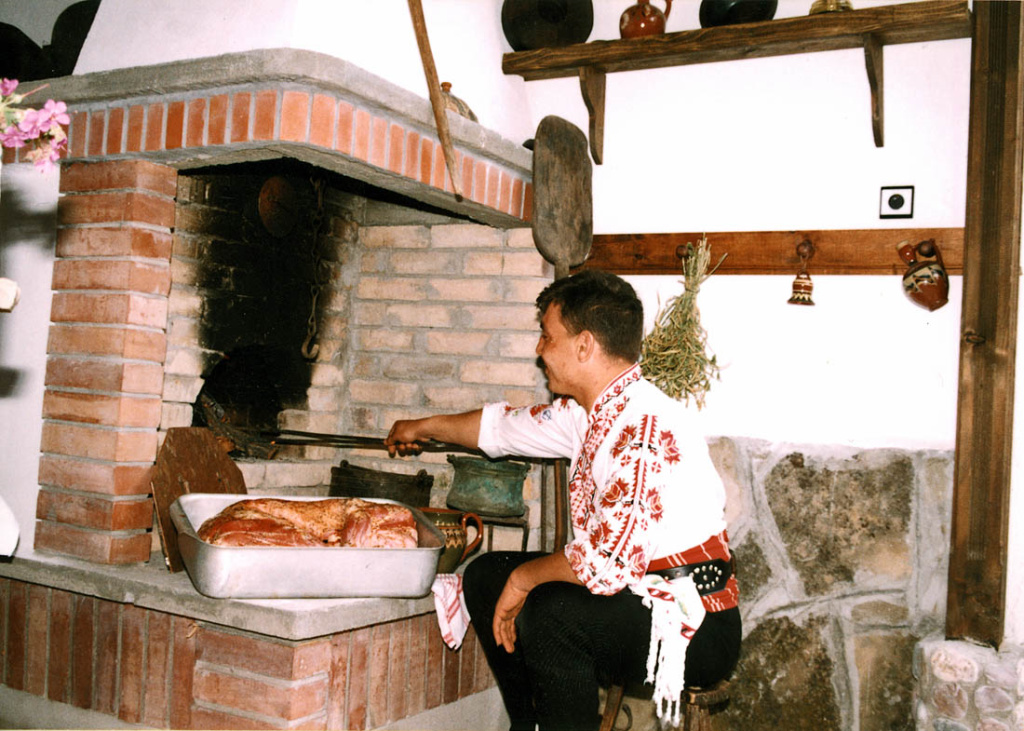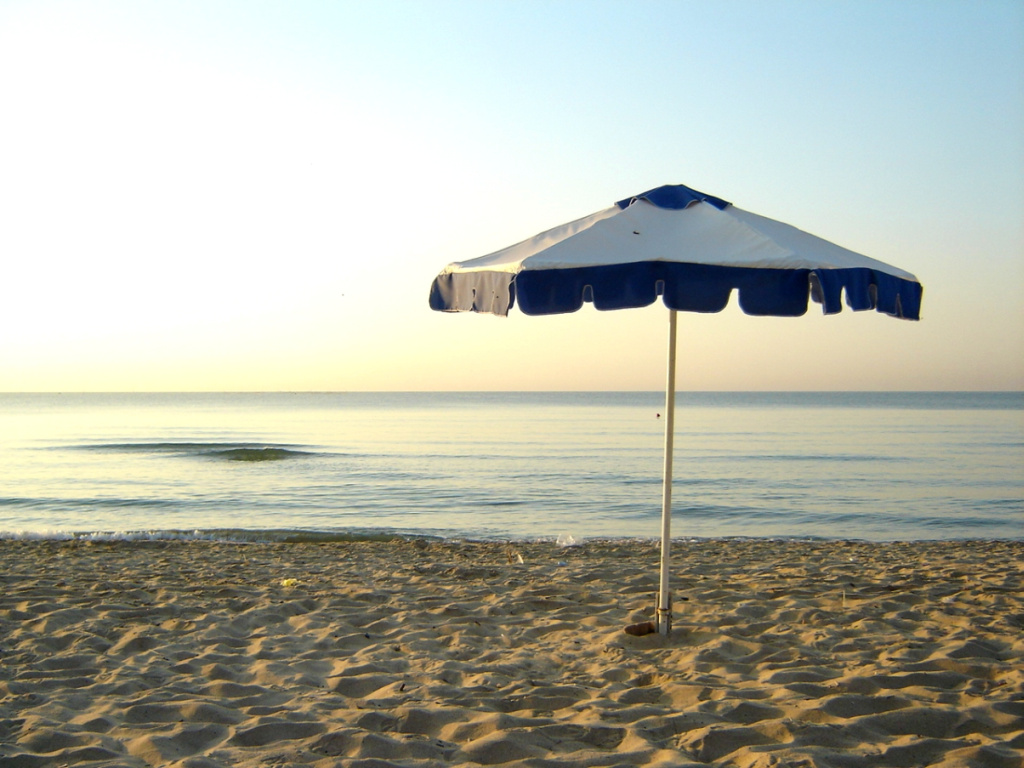Ancient Times
The history of Bulgaria dates back to the founding of Thrace and Moesia during 6th century A.D., inhabited by Slavic tribes. Bulgar tribes dominated the area and settled permanently. Came the 9th century, Bulgars and Slavs merged although culture and language is predominantly Slavic. Khan Asparuhk first established the Bulgarian empire whom he reigned from 680-701, followed by Terrel in 701-718; Khan Krum in 803-814 who defeated Emperor Nicephorus I.
Bulgaria then became battling ground for rivals Rome and Constantinople in terms of culture and politics during the Ninth (9th) Century. Christianity was adopted by Boris I in 1865 and after 5 years Bulgarian church has been identified as independent. Saints Methodius and Cyril developed a Slavic literary language that was later taught to Bulgarians. Simeon I acquired the title of czar, eventually during his time Bulgaria reached its height. In 1018, the country was taken over by Emperor Basil II. After this, the second Bulgarian empire ascended in 1186; Ivan I, crowned as czar, has taken control of the country. After his reign, his son Kaloyan was crowned in 1204 defeating Constantinople’s Emperor Baldwin I. In 1218, Ivan II attained the height of Bulgaria’s power extending his rule nearly the entire Balkan Peninsula excluding Greece.
The Turks
Under the Turks era, Serbia has conquered the Macedonian Bulgaria. The Ottoman Empire captivated Bulgaria after the battles of Kosovo and Nikopol together with this is the proliferation of rebellions all  over the country. Bulgarian nationalism grew even more even though Midhat Pasha’s Administration made Bulgaria a model region. More and more people continue to use Bulgarian and evident with the works of a monk in 1762 and is registered as the first contemporary literary work.
over the country. Bulgarian nationalism grew even more even though Midhat Pasha’s Administration made Bulgaria a model region. More and more people continue to use Bulgarian and evident with the works of a monk in 1762 and is registered as the first contemporary literary work.
In 1835 schools started to open while in 1870 churches are reinstituted.
Reaching Independence
Bulgaria finally won against the Turks in the Balkan Wars. However a huge part of Macedonia and S Dobruja was lost in the Treaty of Bucharest. This had been an issue contributing Bulgaria’s participation in the World War I which a lot of local people opposed. The military collapsed and Bulgaria was compelled to pay damages loosing its passage to the Aegean Sea to Greece and few territories to Yugoslavia.
What took over is Stambuliski’s Agrarian party until 1923 when they were deposed from a bloody coup. As a result, political confusion become eminent with the domination of Macedonian terrorist group and had been further aggravated by the economic crisis in 1929. Five years after, with the help of the army, Kimon Georgiev has ended constitutional government. He was later overthrown by Boris III in 1935 and started his dictatorship.
Bulgaria became an alliance with Germany during the World War II and has seen this as an advantage to gratify its territorial claims. This somehow became worthwhile after restoring S Dobruja from Romania to Bulgaria as well as occupying parts of Greece and Yugoslavia. It declared war in the US and Great Britain excluding the Soviet Union as most of them are pro-Russian. After this, Soviet Union declared war on Bulgaria and Goergiev’s political forces detained power immediately. Bulgaria then declared war against Germany followed by a ceasefire with the USSR.
Bulgaria after the War
Communism has taken over Bulgaria, abolishing monarchy and establishing a republic in 1946 led by Premier Georgi Dimitrov. This led to peace treaty with the Allies in 1947 allowing S Dobruja still their territory but not Macedonia; get rid of his possible rivals like Nikola Petrov; and the formulation of new constitution making Bulgaria a one-party state.
The government slackens off from its hold as the Stalinists fell from its control. It was followed by a coup by party officials and the army in 1965 which had became unsuccessful.
Two decades after Bulgaria favored democracy again becoming a multi-party state with parliamentary republic; equal rights for Ethnic Turks and Bulgarians; and restoration of properties and rights of old party in Bulgaria. It is then followed by parliamentary elections on June 1990; Adoption of democratic Constitution and local elections in 1991; first free presidential elections in 1992 putting on position Zhelyu Zhelev and Petar Stoyanov in 1997; Georgi Parvanov in 2002 until his re-election in 2006.



